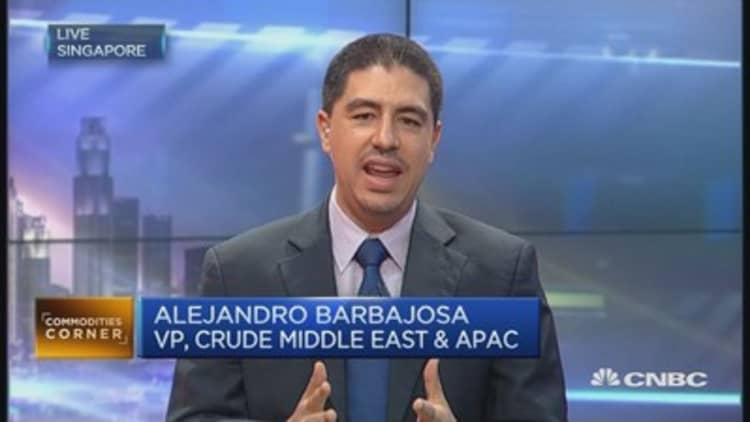
A production cut from OPEC may have to wait until 2017 as the cartel continues to pump oil to snag market share away from higher-cost producers, an analyst said Tuesday.
Burgeoning energy supply has sent oil prices down by more than half over the last 18 months, but the oil cartel has held onto its 30-million-barrel a day production ceiling.
Crude oil prices have tanked to seven-year lows: U.S. WTI oil is down around $36 a barrel currently while crude is around $38 a barrel. The slump in energy prices has also rocked stock markets and raised doubts over the ability of energy companies to roll over their debt.
"At this point in time, they've (OPEC) got a very short window of opportunity to show the rest of the market that their strategy is working and they are actually regaining some market share but that is just constrained to the end of this year and probably next when non-OPEC production is actually forecast to fall," Argus Media's vice president of crude for Middle East & Asia-Pacific, Alejandro Barbajosa, told CNBC's Squawk Box.
Non-OPEC production is forecast to fall by half a million barrels a day by the end of 2016 and then set to rebound into 2017. OPEC currently has 13 members.
With all producers "maxed out" on production by then, it may be a better time discuss a production cut, Barbajosa added.
"Now, because Iran is about to come back into the market, it's impossible to agree to any cut. Further down the line, once you see some effect of this strategy in terms of market share and everyone's comfortable with whatever they are producing...it might be a better platform to cut."
As for now, there are already indications that OPEC production is already increasing just about ten days after its last meeting, said Barbajosa.
Loadings for key Iraqi crude oil exports onto vessels have increased 5 percent in the first half of December from a month ago to 3.3 million barrels a day, he added.
"It seems that the carte blanche that was given to OPEC member members to pump at capacity...is already being enforced and they are of course trying to compensate for the low prices with additional production."


